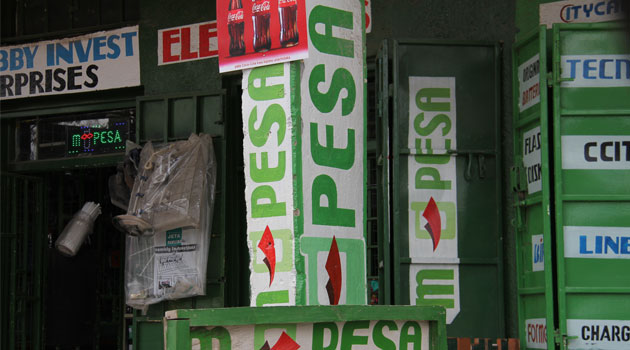
The research indicates that non-Nairobi urban areas, profitability has increased by 26 percent while in rural areas profits for the agents have gone up by 45 percent/FILE
The research indicates that non-Nairobi urban areas, profitability has increased by 26 percent while in rural areas profits for the agents have gone up by 45 percent.
However, according to the report, profits in Nairobi have decreased by 20 percent in the period under review attributable to competition from the new agents setting up business in the capital.
Increasing in profitability is attributable to a decrease in operating costs that have dropped by 37 percent in the last year as agents diversify their sources of income.
“Many agent enterprises have now diversified their businesses like putting up retail stores, chemists on their enterprises this has led to an increase of non dedicated agents that have gone up to 64 percent of agents,” said Helix Institute Head Kimathi Githachuri.
Eleven percent of agents are not profitable. This is an improvement compared to 17 percent in 2013.
“Agents are still citing competition with other agents as the greatest limitation to expanding their business. This is an interesting complaint from agents given that they decreased the amount of cash and e-float on-hand,” Githachuri added.
Banks now account for 15 percent of the agency market in Kenya, which is a three-fold increase from 2013 owing to the aggressive growth of their agent networks in Kenya and decreasing exclusivity.
Exclusivity went down from 96 percent in 2013 to 87 percent in 2014.
The report states that banks seem to be using a strategy of recruiting existing agents used by Mobile Network Operators (MNOs) to also offer their services.
“It appears that customers are using MNOs and Bank agents in different ways, and therefore they are not necessarily in competition, and might coordinate to reduce redundancies in support services including monitoring visits, call centres and trainings, “he said.
The median number of transactions per day has increased for MNOs, while it has decreased by 17 percent for banks since 2013. While about a third of bank agents do 15 transaction or less a day, about a third of MNO agents conduct over 60 transactions per day.
“While agents serving MNOs are conducting a higher number of transactions, bank agents are offering a greater array of services at the agent level, and conducting larger sized transactions, which means revenue for both models is now on par and there is significant interest in the market for becoming a banking agent,” Githachuri added.
Safaricom is still the largest provider in Kenya but has experienced a substantial drop in its market presence from 90 percent in 2013 to 79 percent in 2014, including a 19 percent drop in Nairobi.
Equity Bank has drastically increased its footprint now comprising 8 percent of total market presence in 2014 compared to 1.3 percent in 2013 followed by Airtel, Co-operative Bank, Kenya Commercial Bank and Family Bank respectively.
The reports highlights opportunity for further network expansion as 75 percent of the population is rural and only 22 percent of the agent network is in the rural areas.
Agents predicting they would continue as an agent in Kenya increased from 58 percent in 2013 to 80 percent in 2014.


































